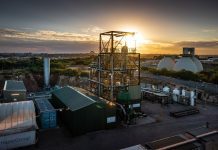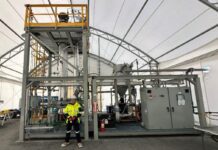
The Tasmanian Institute of Agriculture (TIA) has secured additional funding for its research hub dedicated to exploring the cultivation of traditional Chinese herbs in the region.
This initiative aims for Tasmania to capitalise on the burgeoning $130 billion global traditional Chinese medicine industry, the institute said in a news release.
The project, initially slated for completion this year, has now been extended until 2026 following an infusion of $278,000 from AEMG Education/W&E Health, augmenting the original $1 million investment.
The extension, spanning two and a half years, is poised to facilitate the culmination of seven PhD projects aimed at exploring the viability of cultivating six potential new crops in Tasmania.
Among these crops are Chinese Bellflower, Milkvetch, and peony, with researchers scrutinizing whether these herbs can be grown in Tasmania to meet stringent quality standards.
Professor Dugald Close of TIA expressed enthusiasm regarding the project’s potential to catalyze a burgeoning agricultural industry in Tasmania, centered on the production and processing of premium quality medicinal herbs.
“The funding extension will allow to continuation of important research for Tasmania. We are thrilled that AEMG Education continues to support our partnership with their very significant commitment,” remarked Professor Close.
“Our research aims to match the Tasmanian climate and soils with potential new crops, and develop growing systems to optimise quality in terms of the bioactive components. The rising demand of Chinese medicinal herbs could create an opportunity in Tasmania,” he added.
Established in 2019 through a collaboration between TIA and AEMG Education, the research hub for Traditional Chinese Medicinal Herbs underscores a commitment to bridging Eastern and Western agricultural practices.
A spokesperson from AEMG Education pointed out the organisation’s support for the research hub, highlighting its role in showcasing Tasmania’s capacity to diversify into high-value crops.
“We are immensely proud of our involvement in the Traditional Chinese Medicine research hub and the partnership with TIA. This initiative not only represents a bridge between Eastern and Western agricultural practises but also showcases the potential for Tasmania’s unique climate and soils to diversify into new, high value crops,” the spokesperson remarked.



















